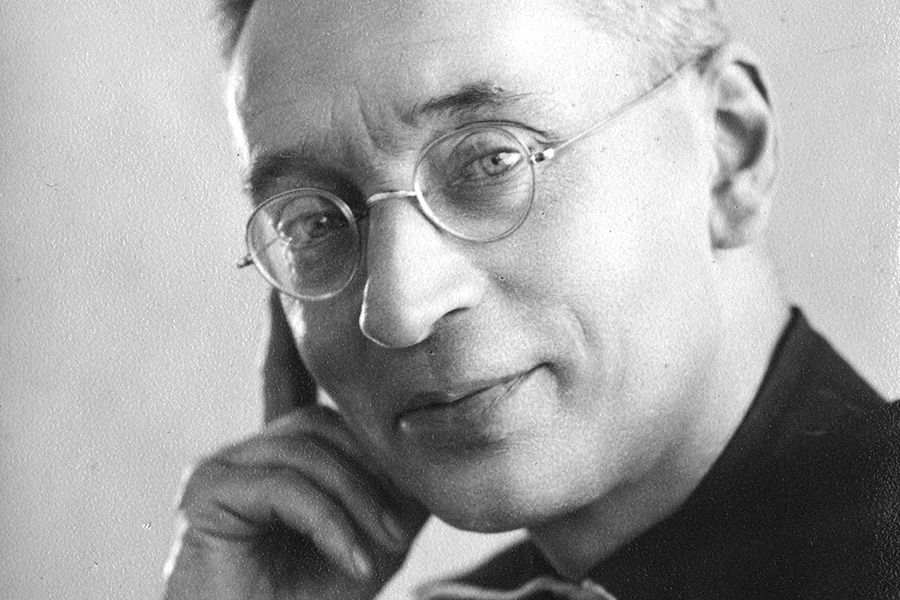Titus Brandsma: A New Patron Saint of Journalism?
More than 60 journalists write to Pope Francis with request, saying soon-to-be saint’s ‘journalistic works stand out among all his other activities,’ adding that ‘he gave his life for it. In our view, this makes him particularly suitable for this patronage.’

More than 60 journalists have petitioned Pope Francis to make Titus Brandsma an official patron saint of journalism.
An open letter published on May 10 said that the world “urgently requires a holy intercessor” like Brandsma, a Carmelite priest and journalist, “in these times of disinformation and polarization.”
Father Brandsma, who will be canonized as a saint in the Catholic Church on May 15, died in the Dachau concentration camp in 1942 after he firmly opposed mandatory Nazi propaganda in Catholic newspapers.
“We, Catholic journalists, recognize in Titus Brandsma a professional peer and fellow believer of considerable standing. Someone who shared the deeper mission that should drive journalism in modern times: a search for truth and veracity, the promotion of peace and dialogue between people,” the petition says.
The appeal letter was co-written by three journalists from the Netherlands, where Brandsma was born, and a journalist from Belgium. It was co-signed by more than 60 Vatican correspondents.
“Titus Brandsma has meant a lot to the Catholic community in the Low Countries, but his journalistic works stand out among all his other activities. He was editor-in-chief of a newspaper, devoted himself to the modernization and professionalization of the Catholic daily press in the Netherlands, and strove for better working conditions and the establishment of professional training for journalists,” the letter says.
“Father Brandsma did his work in the context of the rise of fascism and Nazism in Europe. In word and deed, he opposed the language of hatred and division that was becoming common at the time. In his view, what we now describe as ‘fake news’ was not to be tolerated in the Catholic press; he successfully argued for an episcopal ban on the printing of National Socialist propaganda in Catholic newspapers.”
The letter acknowledges that the Catholic Church already has a patron saint of journalists: St. Francis de Sales.
Pope Pius XI proclaimed the bishop of Geneva the patron saint of journalists and writers in 1923. The 16th-century saint used his gifts as a writer to pen the devotional classic, An Introduction to the Devout Life, as well as letters, sermons and documents addressing controversies and Calvinism.
The letter argues that the French saint was “undoubtedly a holy man of faith and of great merit, but he was not a journalist in the modern sense of the word.”
“Titus Brandsma was. And as we said, he gave his life for it. In our view, this makes him particularly suitable for this patronage,” it adds.
Father Brandsma served as a spiritual adviser to the staff of more than 30 Catholic newspapers in the Netherlands. He also worked on a biography of the Carmelite St. Teresa of Avila, composed meditations on the Stations of the Cross, and wrote letters.
Throughout the 1930s, Father Brandsma watched aghast as Adolf Hitler strengthened his grip on neighboring Germany. The friar sharply criticized Nazi policies in newspaper articles and lectures. “The Nazi movement is a black lie,” he said. “It is pagan.”
When Dutch newspapers were told to accept advertisements and press releases from their Nazi overlords, the archbishop of Utrecht asked Father Brandsma to tell the country’s Catholic editors that they should refuse the order.
Father Brandsma managed to visit 14 editors before he was arrested on Jan. 19, 1942, at a monastery in Boxmeer. As the Gestapo prepared to take him away, he knelt before his superior and received his blessing.
An officer, Capt. Paul Hardegen, later asked Father Brandsma to express in writing why his countrymen scorned the Dutch Nazi party.
“The Dutch,” the friar wrote, “have made great sacrifices out of love for God and possess an abiding faith in God whenever they have had to prove adherence to their religion. … If it is necessary, we, the Dutch people, will give our lives for our religion.”
Father Brandsma and 10 other candidates, including Charles de Foucauld and four women, will be declared saints in the first canonization Mass at the Vatican in more than two and a half years.
Ahead of his canonization, the Embassy of Netherlands to the Holy See has organized a symposium on Father Brandsma and freedom of the press.
Ambassador Caroline Weijers told Vatican News that one of the themes she expected to be addressed at the symposium was that “the world needs courageous journalists like Titus Brandsma to make a difference for humanity and human rights for all.”
- Keywords:
- blessed titus brandsma
- canonizations
- saints
















